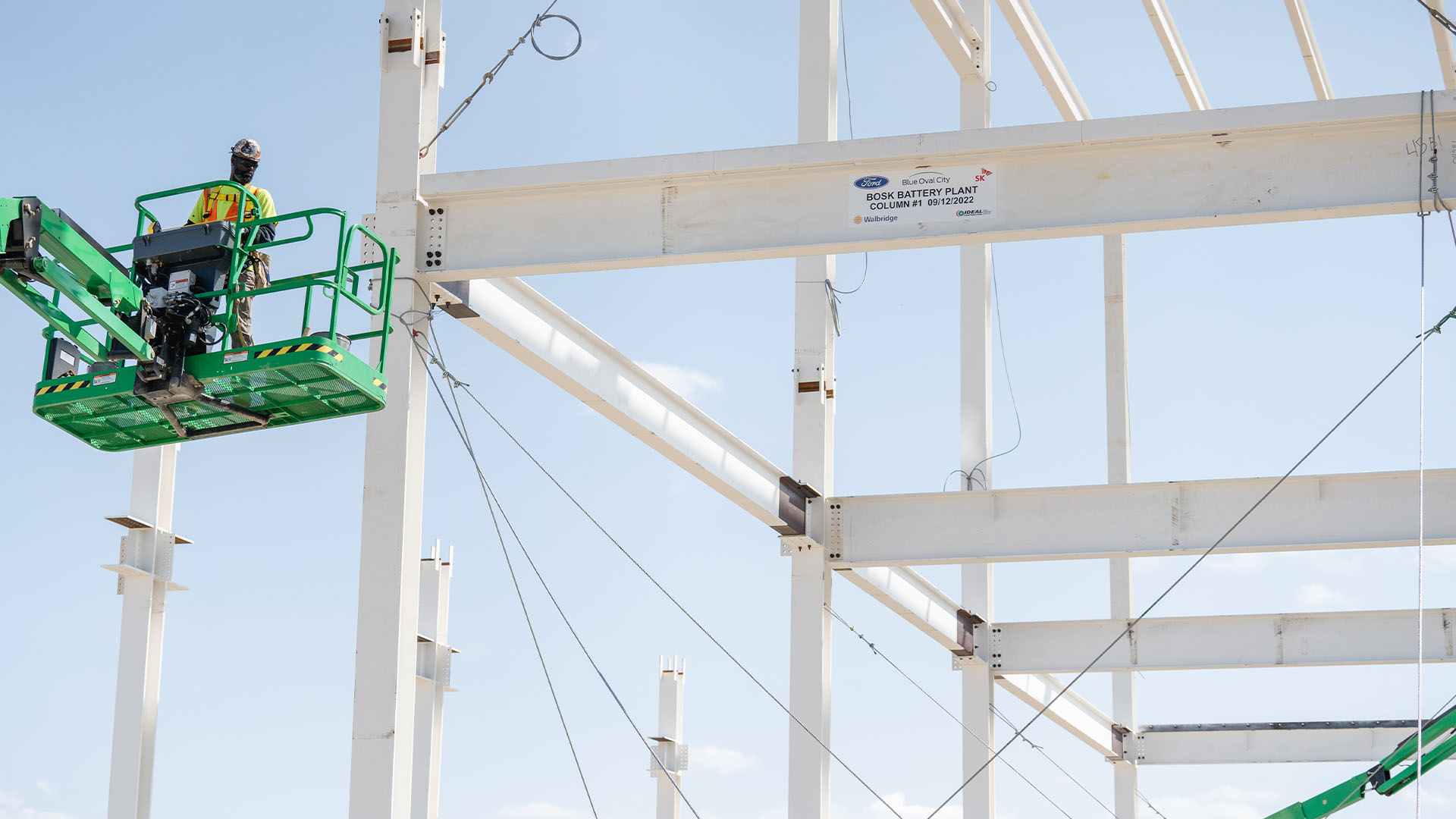

It’s been almost a year since Ford announced its plans for Blue Oval City, part of an $11.4 billion investment into the domestic production of electric vehicles. At the time, Ford said that it was the company’s “biggest investment ever” and that it planned to bring the campus online by 2025.
On Friday, Ford reported that it has not just broken ground in Tennesee earlier this month, but it has already erected the first columns of structural steel that will become the BOSK Battery Plant.

Ford and its construction partners initially started building out the mega plant in March by prepping the land. The next six months were spent moving 4.6 million cubic yards of soil, installing 4,600 deep foundations, and laying 370,000 tons of stone. For reference, that’s the weight of more than 120,000 F-150 Lightning pickups, which almost meets Ford’s annual production capacity of the electric truck.
Crews have now started assembling the steel structures that will make up the various buildings. While crews are still fairly early in the build process, they will eventually construct the entirety of Ford’s six-square-mile campus.
“We are building the future right here in West Tennessee,” said Eric Grubb, Ford’s director of new footprint construction. “This facility is the blueprint for Ford’s future manufacturing facilities and will enable Ford to help lead America’s shift to electric vehicles.”

Along with Bue Oval City, Ford plans to build two additional battery facilities in Kentucky at its upcoming Blue Oval SK campus. The two locations will offer a combined output of 129 gigawatt-hours of capacity and house 11,000 jobs—6,000 in Tennessee and 5,000 in Kentucky. Ford CEO Jim Farley said that the automaker also plans to build an upcoming EV pickup at Blue Oval City when it comes online in 2025, but it hasn’t revealed any further details on that.
Ford’s push for domestic battery manufacturing comes at a crucial time. Its partnership with South Korea’s SK Innovation will aid in Ford’s goal of producing two million EVs annually by 2026. Likewise, it will undoubtedly give Ford a further push in the market as the new EV tax credit changes take effect, which heavily rely on the domestic production of vehicles and battery components.
Got a tip or question for the author? Contact them directly: rob@thedrive.com